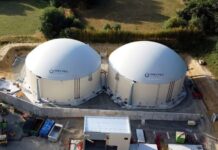- The “Zero Carbon Project” aims to support the world’s transition to a net-zero future
- Schneider will partner with its top 1,000 suppliers which represent 70% of Schneider’s carbon emissions
New Delhi – Schneider Electric has launched the Zero Carbon Project. Under the new initiative, the company will partner with its top 1,000 suppliers – which represent 70% of Schneider’s carbon emissions – to halve their operations’ CO2 emissions by 2025. The initiative is part of Schneider’s 2021-2025 sustainability goals, and is a concrete step towards limiting the rise in average global temperatures to 1.5°C or less by 2100, as targeted by the Paris Agreement.
Under the program, Schneider will provide tools and resources to program participants to help them set and achieve their own carbon reduction targets. Suppliers will be first encouraged to quantify their CO2 emissions using the company’s digital tools. Suppliers will then use that data to set goals and strategies for emissions reduction. Suppliers will also work towards their goals through decarbonization initiatives such as energy efficiency or renewables. The Zero Carbon Project will enable best practice exchange with peers and partners to access other innovative solutions for decarbonization.
The program will be supported by Schneider’s Energy & Sustainability Services division, which has partnered on similar supply chain decarbonization initiatives with its corporate clients, including Walmart, GSK, and the global Sustainable Apparel Coalition.
“The challenges posed by climate change are something we urgently need to tackle together,” said Olivier Blum, Chief Strategy and Sustainability Officer. “Schneider aims to reduce scope 3 emissions by 35% by 2030 but we can’t make this journey alone and we encourage suppliers to join us as they are an integral part of our ecosystem. We offer to share our expertise and experience with them on how they can decarbonize their operations leveraging our range of Sustainability Consulting Services and digital EcoStruxureTM or other third-party solutions.”
For many organizations, reducing supply chain emissions can be one of the most challenging aspects of decarbonization, but also one of the most important priorities, since a majority of organizational emissions can be found in the Scope 3 category (which includes all other indirect emissions that occur in a company’s value chain.
“We’ve been actively reducing the carbon footprint of our supply chain. Through the use of our EcoStruxureTM platform, we managed to reduce energy consumption in our plants and distribution centers by more than 10% every 3 years for the past 12 years. We currently operate 30 zero emission sites, and more than 120 others will be added to the list in the next 5 years,” said Mourad Tamoud, Schneider Electric’s Chief Supply Chain Officer. “Our entire supplier network accounts for emissions of over 7 million CO2 tons per year, and we need them to take an active role, in partnership with us, if we are to make a meaningful reduction in our carbon footprint.”
“India is an important local manufacturing center for Schneider Electric. We have a large supplier network in India to meet growing customer demands,” said Javed Ahmad, Senior Vice President for GSC International region. “Reducing the carbon footprint in partnership with our suppliers is more crucial than ever as we accelerate our journey towards a climate positive world.”
Earlier this year, Schneider Electric was recognized by Corporate Knights as the most sustainable corporation in the world. The ranking was the result of more than 15 years of work by the company to refine and progress its sustainability strategy. Schneider has also been recognized as a leader in energy management as the #1 Energy Service Company (ESCO) and in renewable energy as the RE100’s inaugural Clean Energy Trailblazer winner (2020). The company also debuted its corporate Climate Change Advisory and Supply Chain Decarbonization services in February.
To learn more, visit www.se.com/ess.








![SMART ENERGY WEEK [September] 2025 to Lead Global Renewable Energy Advancements SMART ENERGY WEEK](https://timestech.in/wp-content/uploads/2025/07/Untitled-design-2025-07-31T112230.406-218x150.jpg)








